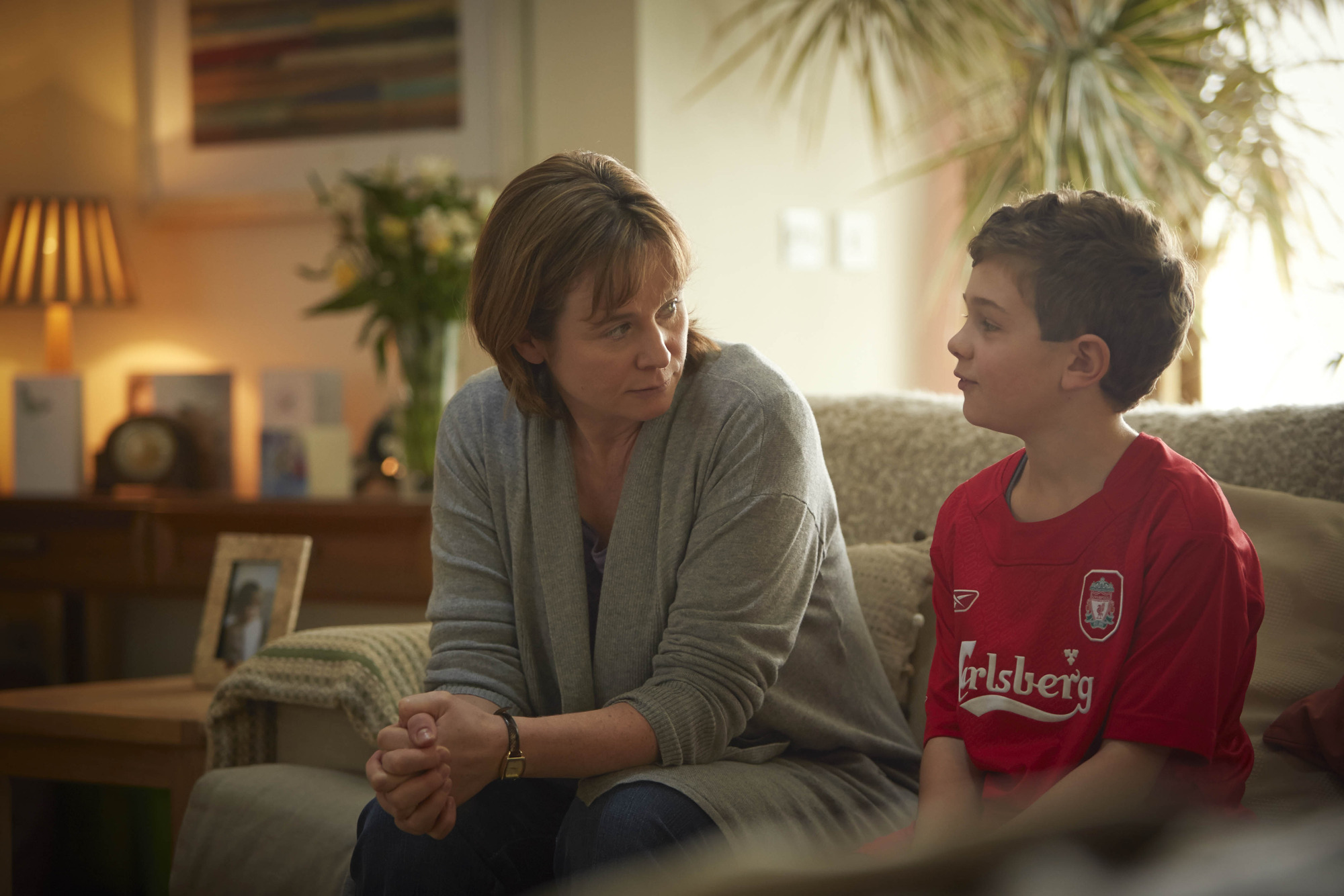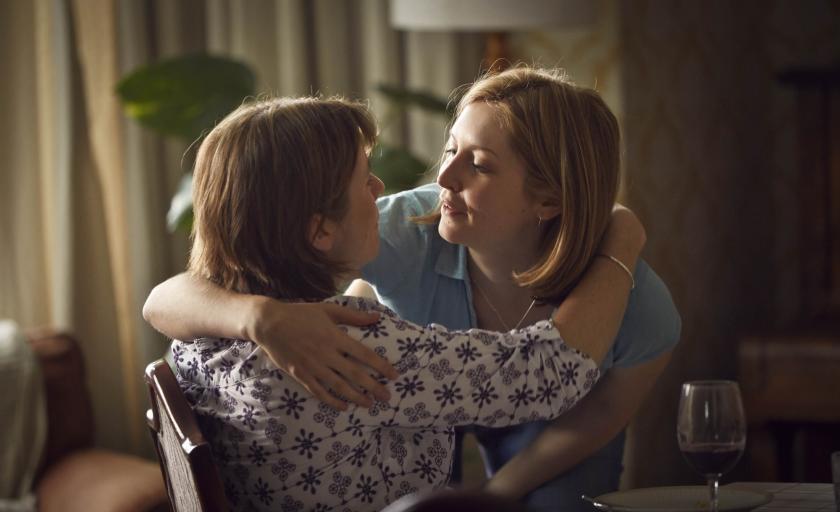Rev Julie Nicholson, bereaved by her daughter’s death in the 7/7 bombings, became known as the vicar who can’t forgive. Her 2010 memoir, also entitled A Song for Jenny, detailed the way her pain undermined her vocation, to the point where she gave up preaching the following year. Playwright Frank McGuinness has been working on this adaptation since the book was published, and in human terms, it’s superb. But it doesn’t have much to say about Julie’s faith: where it came from, and why her daughter’s death specifically changed it, given – sadly – that murder has been with us longer than Christianity.
The Nicholsons’ life before the bombings seemed idyllic. The opening scenes of an extended, affectionate family with the charming and beautiful Jenny at its centre shows just how much was lost that day. McGuinness sets the pace just right. There was just enough time to establish the cherished relationships with perfectly weighted, poignant moments – the last kiss with Jenny’s partner, the last family meal – before the bomb goes off.
Watson's unwavering emotional glare comes close to being overwhelming
In a completely different register, responses to first suspense, then grief, are similarly well observed. Julie wants complete honesty, even when it involves excruciatingly painful detail. Jenny’s scientist partner James (Gwilym Lee) is alert to early signs, such as the collection of personal items bearing Jenny’s DNA, that the police expect Jenny has died. Not everyone knows how to react. Julie’s father (John Woodvine) wonders, as the elderly bereaved are prone to, why it wasn’t him, while Jenny’s young cousin (pictured below) asks questions about the physical nature of the bombing that should be unbearable, but somehow help.
Nor is the spare and beautiful observation of behaviour confined to family. Police and medics are models of professionalism, dealing with Julie’s insistence on knowing everything with the utmost tact. Even the cabbies are sensitive. One of the most moving sequences is the journey Julie takes in a cab, after visiting the bombsite. As soon as he finds out why Julie is in London, the cabbie stops moaning about the traffic and drives Julie back to Reading, for free, as a gesture of humane sympathy.
In an early instance of the programme’s ambivalent, baffled take on religion, the only unhelpful official presence is the floundering young priest in A&E, whose attempts at pastoral assistance are merely hapless. One of several tender and measured flashback scenes featuring Jenny shows her with Julie shortly before Julie’s ordination. Julie reveals the red lacy bra beneath her cassock. As a family moment, it’s delightful, illuminating the tenderness between mother and daughter that was so horribly destroyed. As an insight into Julie’s belief, however, it’s all a bit Vicar of Dibley.
 Watson, who plays Julie, is known for her intense roles, and can be the over-hot chili in a dish that needed warmth and subtlety. Here, Watson’s unwavering emotional glare comes close to overwhelming during the central sections of the piece. Even allowing for the fact that Julie is, of course, at the drama’s centre, there is only just enough of Jenny’s father and siblings.
Watson, who plays Julie, is known for her intense roles, and can be the over-hot chili in a dish that needed warmth and subtlety. Here, Watson’s unwavering emotional glare comes close to overwhelming during the central sections of the piece. Even allowing for the fact that Julie is, of course, at the drama’s centre, there is only just enough of Jenny’s father and siblings.
The family regroups for Jenny’s funeral in touching scenes that rebalance the family dynamic. The credits roll to a Jan Garbarek-style saxophonist playing the entrance music. Of the Christian funeral rites, phrases that have been central to our response to death and bereavement for two millennia, there’s nothing. As family drama, and a study of grief, A Song for Jenny is masterful. As a study of a vicar with a damaged faith, neither McGuinness, nor anyone else, seems to know where to start.















Add comment